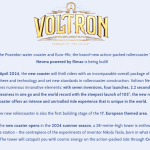Croatia coach Zlatko Dalić opens his heart and soul to 24 Sata on July 4, 2018.
“Well, if someone told me this would happen when I started preparing for Rovinj in May…” Zlatko Dalić said relaxed and comfortable on the terrace of the local cafe.
“Coffee, please,” ordered the coach and looked at his mobile
“I have received thousands of messages, and I have not responded to many people, although every one of these messages is important to me. I am so emotional about the people fighting in Croatia in a variety of ways. Here, there is one lady that is very sick from Zagreb, she said she watched the game from Ban Jelačić Square for the first time. I promised to visit her when I come to Zagreb. It was her message that really spoke to me.”
Dalić could not sit quietly, as someone was always coming over to him, shaking his hand, looking for a photograph.
“Mr. Dalić, I’m a security guard, but you would do me a favor and take a photo with me?” said a young man who watches over Croatia’s hotel.
The photo was not a problem, but Dalić’s mobile phone did not stop buzzing with notifications.
Message, call, message, message…
“Here are my Varaždin people, who regularly take the pilgrimage to Marija Bistrica. They wrote to me after the game with Denmark: We were there for the 329th time, we prayed for you and your boys, it is not our turn to finish.”
In 2001 when Goran Ivanišević won the Wimbledon, he had a ritual he would always repeat. Without fail, he always let his opponents sit on the bench first. When he went out onto the court, he didn’t step on a single line. He watched the same TV program, ate at the same restaurant.
“My ritual? Here,” Dalić said, reaching his right hand in his pocket. He took out a rosary.
“It is consecrated in Medjugorje, and I don’t go anywhere without it.“
There is tiredness on Dalić’s face. This isn’t easy. The match against Denmark has exhausted him mentally like nothing else before.
The messages keep coming. Among them, is there one from Nikola Kalinić?
“No. He did not call. And I don’t want to come back to it, I can only say that I was not proud of it or happy and that this is a stain on my career, my defeat. But I’m calm because I did everything to keep it from coming. Too bad, because Nikola would have definitely played here,” Dalić said and continued.
“This is a strange championship, the World Cup has shown no favorites, everyone who played beautifully – Spain, Portugal, Argentina… went home. What’s left are the only tactically mature, responsible, disciplined teams. For the Russia – Spain game, we followed Spain more, but now Russia has taken over, and Ćorluka knows everything about them. Scouting is important, but you cannot see everything.”
“We could not influence it the game against Denmark. We did not foresee the long throw-in because Knudsen did not play the last seven games. We were not prepared for him and we received a goal. I’m glad that we beat Denmark and we did not play great, and everyone could have done a lot more. We did not shine against Denmark, it was our fairly average match, in terms of what we know. We had fight and character. If that was their maximum, I’d say, come on, that’s it. But, I know we can do much, much more, so I’m not worried.”
The pressure is enormous. The entire country stands beside Dalić. But there was similar pressure in Saudi Arabia.
“There was a tremendous pressure there, and as we had passed the Champions League group, it was stronger and stronger. It’s similar to how it was then, but not even close; this is my team, my country, my people… And I’ll tell you something else: I’m the only coach in the history of the Asian Champions League who, with their clubs Al Hilal and Al Ain, passed the group four times in a row. Well, that fact helped me in some way here.”
Dalić is experiencing the most beautiful moments of his career. With Croatia, he has entered the top eight teams in the world.
“Uh, when I remember the beginning, I really do not even remember my first match on the bench in the HNL. Ćiro led Varteks, lost at Poljud 6:0 and then I took over the club, I think it was 2005,” says Dalić.
As he sat there, the history of the World Cup spun on the TV. They showed captains raising the trophy like Deschamps, Maradona, Lahm, Cannavaro… Did you think about what it would be like if Modrić raised the trophy in Moscow?
“Honestly?” said Dalić and took a sip of coffee.
“I am not sure. But I know we’re close, I just know. And you know, we’re together 40 days, 35 men, and it is fantastic, there hasn’t been the slightest incident here. And they suffer, push, they support each other, but oh, how much they suffer… They are tired. They told me that, and they saw the match against Denmark where they ran 99 kilometers, which was seven less than against Argentina and Nigeria. It is clear to me that they can all hardly wait to go home, but we are already here, and it would be a shame not to see Moscow,” said Dalić and asked for the bill.
“It’s paid,” the waitress said.
“How? Who paid?” asked the Croatian coach.
“I paid,” said a young man in a Spartak Moscow jersey at the neighboring table.
“My name is Jevgeni Gluškov. I’m the coach of the lower league Spartak from Novosibirsk and I have come to shake hands. You are a hit.”
Translated from 24 Sata








